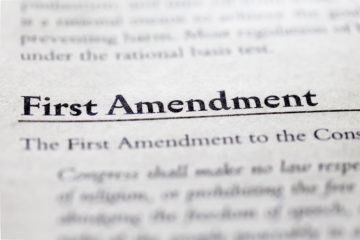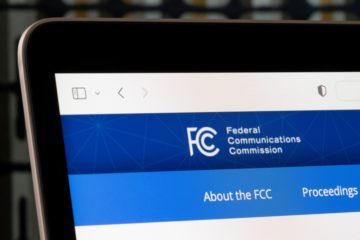The Market Institute President Charles Sauer has a new piece in the Washington Examiner’s Restoring America series on Standard Essential Patents. Excerpt below.
“Sometimes, in Washington, D.C., it’s hard to figure out which side is the good side and which is the bad. It’s not an old Western film in which the good guys are the obvious heroes, wearing white cowboy hats and trying to keep the bad guys in check.
But sometimes, the sides are very clear. Take, for example, a recent letter from China supporting changes the Biden administration wants to make to standard-essential patents, or SEPs. That a foreign rival would endorse President Joe Biden’s proposal is a clear sign that this administration does not support U.S. innovation as much as it supports China stealing our innovations.
SEPs are how technologies such as USB-C and Wi-Fi can proliferate so freely to different devices. The patents that support these technologies are bundled into groups and licensed at fair and reasonable rates, also known as FRAND. The patent owners like this arrangement, and the licensors benefit by being able to incorporate these technologies without long, drawn-out negotiations with multiple parties.
However, the companies that use SEP technologies don’t like paying to use them. So they have been lobbying Congress for decades to make patents less effective, less powerful, and less like our founders intended.
Unfortunately, it seems this group of innovation users was able to convince someone in the Biden administration to do their bidding because the U.S. Patent and Trademark Office, National Institute of Standards and Technology, and Department of Justice recently published a draft rule that would make it harder to enforce these patents. The rule change essentially gives international patent users an almost free pass to go ahead and steal these technologies.
A comment submitted by 27 academics and economists sums up the problems with this proposed rule best:
In particular, the Draft Statement proposes a protracted sequence to follow in negotiations between SEP licensors and prospective licensees. Once these extensive steps have been implemented and an implementer explicitly refuses to accept a license on FRAND terms, the Draft Statement dictates that an SEP owner may file a lawsuit, but still may not seek an injunction.
Like most government rules and regulations, the specifics can get a bit, well, wonky. In short, Biden’s rule would effectively put a stop to injunctions — or the legal way of stopping someone from selling an infringing product. By disallowing injunctions, the pressure on infringers is dramatically weakened, and instead — from a business standpoint — thieves might even be incentivized to infringe.
Small patent owners, big R&D companies, pharmaceutical companies, and research universities have been trying to tell everyone who would listen for years that this would be the case. But the concerns have largely fallen on deaf ears.
Hopefully, this will change now that China has weighed in and made its case for weaker patents in agreement with the Big Tech companies and lobbying firms that represent them.
Make no mistake: China’s motivation for supporting the rule change is not to make U.S. companies more competitive. Quite the opposite. They want to hobble and weaken the U.S. economy, and a policy that would help Chinese companies steal an unfair advantage would do just that. It makes sense that Big Tech and China would support this rule change. And it makes sense that people who use innovation would prefer if that innovation were cheaper. But that doesn’t mean that politicians and bureaucrats should listen to the Gucci-clad cronies in their office and hand over our innovation economy to them.
China’s support should be the wake-up call for the Biden administration and future administrations. Too much is at stake.”
Read the article at the Washington Examiner by clicking here.


